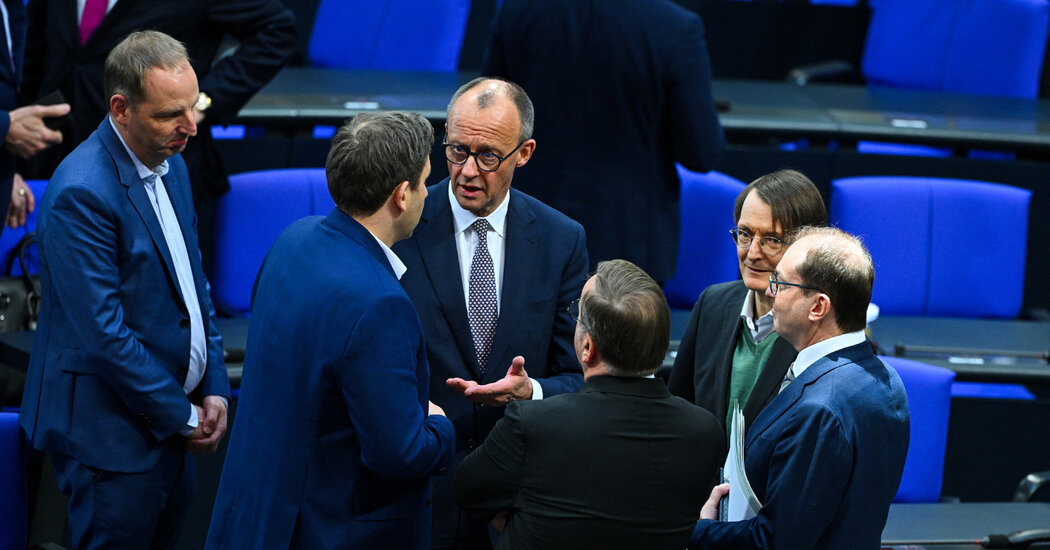Germany’s Politics: A Step Back for Diversity and Gender Parity
The class of lawmakers taking office is noticeably more male and less diverse than the constituents it will represent. Reporting from Berlin, two days after a coalition of conservatives won Germany’s federal election last month, the governor of Bavaria took to Instagram to say the party was ready for political change and posted a group picture of the likely future chancellor, Friedrich Merz, with five other leaders. The photo seemed to suggest that a changed Germany will look remarkably like the country of old: it shows six white middle-aged men sitting around a table of snacks. The only apparent concession to modern sensibilities was that half of them are not wearing neckties.
Representation and Diversity in Germany’s New Parliament
Despite the challenges, there are voices within Germany advocating for a more equitable representation in politics, emphasizing the necessity of women’s presence in decision-making processes. This includes addressing the systemic barriers that have historically limited women’s participation. The discussions around gender parity highlight a broader debate within German society about the role of women beyond traditional expectations. Supporters argue that involving more women in politics could bring fresh perspectives and address an array of issues that may otherwise be overlooked. As debates continue, there is hope that increased awareness and pressure from within and outside the political arena might lead to more substantive changes, potentially influencing future electoral outcomes and party dynamics. The conversation reflects an ongoing struggle for gender equity that resonates with wider movements for social change in Germany.
Reasons Behind Gender Imbalance in German Politics
One potential solution discussed by some political analysts involves implementing quotas for female representation in government bodies. This approach is aimed at addressing the historical imbalance and encouraging more women to enter politics. Although some parties have considered such measures, the idea has faced resistance from those who argue that it could undermine meritocracy. Additionally, there’s an ongoing discourse about creating a more supportive environment for women in politics by addressing systemic challenges such as childcare responsibilities and workplace flexibility. These changes are seen as essential steps towards achieving greater gender equality within Germany’s political landscape.
More Male and Less Diverse Parliament
Another significant factor contributing to the lack of gender parity in German politics is the entrenched nature of traditional networks within political parties. These networks, predominantly formed years ago, have strong ties that often exclude women, especially within the more conservative parties like the Christian Democratic Union. The composition of these networks reflects a time when there were even fewer women in positions of power, which has resulted in a perpetuation of male dominance in political circles. This deeply rooted structure makes it challenging for new female voices to emerge and gain influence, further widening the gender gap in political representation. The situation highlights an urgent need for systemic changes within party politics to ensure that women are given equitable opportunities to participate in and shape the political landscape of the country.
Current Challenges in Achieving Gender Parity in German Politics
In conclusion, the current state of gender representation in German politics highlights ongoing challenges and a need for transformative change. Despite past efforts to increase women’s participation and influence, there are still significant barriers that limit diversity and gender parity within the political landscape. As the government prepares for future leadership, ensuring that women’s voices are heard and valued remains crucial for achieving a more inclusive and representative democracy. The path forward will require a concerted effort to dismantle existing obstacles and foster an environment where all individuals, regardless of gender, can contribute equally to the decision-making processes that shape the nation.















Post Comment